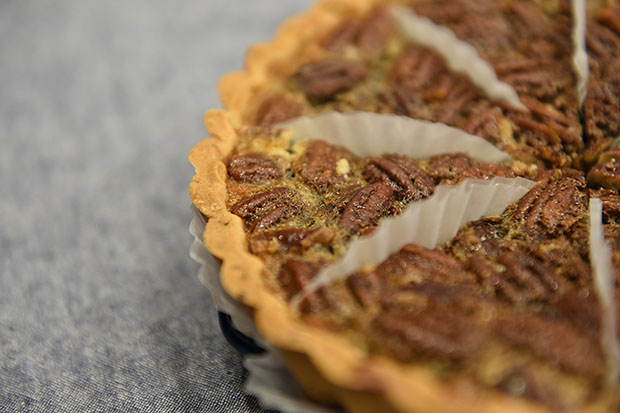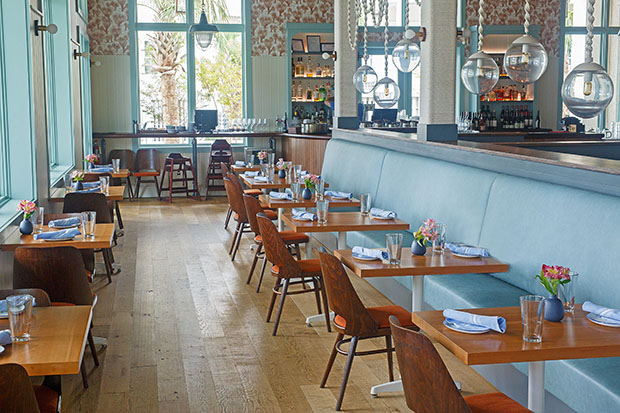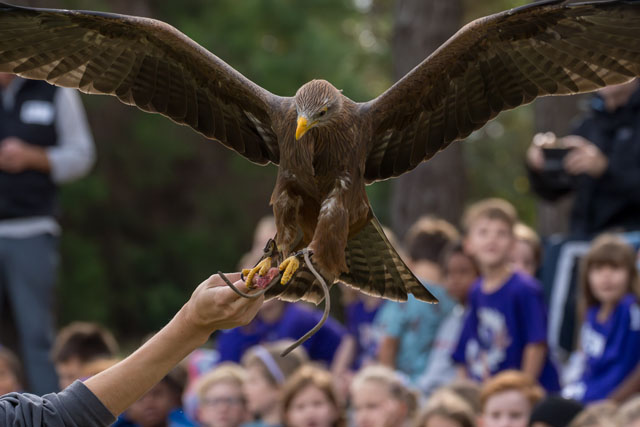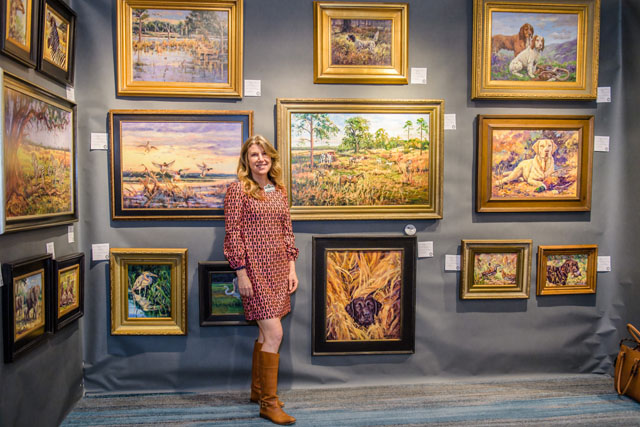A Southern Christmas
02 Nov 2021
Holiday traditions worth keeping
By Tim Lowry

We people of the South Carolina Lowcountry have always prided ourselves on the keeping of traditions. This is certainly true at Christmas time. However, in recent years, unorthodox customs, modern songs and foreign foods have crept into our holiday celebrations. Let me be the first to say that I am not at all personally opposed to elves on shelves, a rousing rendition of “I Want A Hippopotamus for Christmas,” or a plate of sushi sitting next to the oysters at a cocktail party; but we must take care to remember the old ways. After all, it said that Charleston, South Carolina is “where history lives.”
If that slogan is to ring true, than old customs must be practiced, not simply relegated to display boards in the Charleston Museum or filed away on the shelves of the South Carolina Historical Society.
I could go on and on about the importance of maintaining cultural distinctives in an age of homogeneity, but often find it best when explaining such things to my own children to simply say, “Traditions are the things we do to keep the world from falling down; and we wouldn’t want that consequence to be your fault, now would we?”
Thus endeth my sermon. Don’t you wish your priest was so concise when delivering the homily at Midnight Mass?
That is the first of those old traditions that should be maintained—church. Charleston has plenty of them, over 400 houses of worship. Pick one, go inside, it’s Christmas! Now that we’ve gotten that out of the way, here are some other traditions and a little information on their historic contexts that in my humble opinion, should keep a prominent position during the holiday season.
Madeira and Pecan Pie
This deliciously sweet, fortified wine, originally imported by the Portuguese from the Canary Islands, boasts an exotic bouquet with notes of dates, toffee, roasted nuts and caramel brought to full flavor by being stored at a high temperature. As such, it was very popular among Southern Colonists due to our extremely warm weather. It was generally the practice to store the barrels in the attic during the hot summer months.
As the weather cooled in the late fall, the barrels were tapped just in time to toast the Christmas season. Madeira was so highly-prized that Louis Manigault stored 2,100 bottles in the Old Powder Magazine that still stands on Cumberland Street downtown and instructed that it “remain there until my death, and then to be divided equally among my sons and daughters.”
While my own children are too young to imbibe, the best way to help them cultivate a taste for Madeira is to tipple a couple tablespoonfuls of the good stuff into our family pecan pie recipe. (Find some at area liquor stores). The first well-documented recipe for pecan pie only dates back to 1898.
The confection grew in popularity after a similar recipe began to appear on the labels pasted onto bottles of Karo syrup in the 1920s. So technically, this culinary delight is only now approaching its first century as a Southern tradition. Nonetheless, one taste (especially with the Madeira) and you’ll never want Christmas without it. And by the way, my grandfather would wish for me to coach you on the pronunciation. According to the late Samuel Edward Lowry, the word is pronounced “puh-KAHN.” He would then wink wickedly and add “A pee can goes under the bed at night.” (Grandpa being a little bit wicked on Christmas is also traditional. If he gets too wicked, hide the Madeira.)
Fireworks
No one seems to know why or how the discharging of pyrotechnics and/or firearms as a celebration of Christ’s birth became a holiday tradition, but if you grew up in the South, you are well accustomed to the report of more than a few fusillades on Christmas Day. In fact, this custom was so prevalent in old Charleston that the legislature passed a law in 1750 prohibiting “the firing and flinging of squibs, crackers, and other fireworks” to avoid the endangerment and annoyance of people passing in the streets.
According to historian Nic Butler of the Charleston County Public Library, (Podcast, Charleston Time Machine, Episode 138) a reminder of this 1750 law was published in the local newspaper every December for many years following. But apparently it became a happy tradition to completely ignore the newspaper’s admonition. In October of 1772, a local complaint was registered in regards to the “illegal mirth of a few inconsiderate people” engaged in “the common practice of firing guns on the eves of Christmas, and on the mornings of the New Years.”
If you plan to keep this particular tradition alive, please check with your local neighborhood association for policies regarding the discharging of firearms. And remember to always wear safety goggles.
Listening For Christmas to ‘Fall’
In direct contrast to all the noise you can make with a variety of explosive devices, many Southerners enjoy solitude and the accompanying silence on Christmas Eve. We sit up and listen for Christmas to fall. For an explanation, I defer to the celebrated writer Archibald Rutledge and paraphrase from his book Plantation Game Trails (1921): In the South, as perhaps is the case nowhere else in the world, there are many superstitions associated with Christmas. One of these, which amounts to genuine belief, is that “Christmas falls.” Perhaps someone once heard it said that “Christmas falls on a Friday this year.” Whatever the origin of this expression, folks on the plantation firmly believed that the coming of this great day was heralded by some mighty convulsion of nature. Being a romantic like Mr. Rutledge, I have often sat up until midnight on the eve of the Holy Day waiting to hear Christmas “fall.” Perhaps the most spiritually advanced do indeed distinctly perceive at the precise moment a mystic far-off detonation. As for me, if someone whispered, “Did you hear?” I would answer “yes,” and in my heart of hearts hope that it was true.
Storyteller Tim Lowry is a Southern raconteur from Summerville. Learn more at www.storytellertimlowry.com.












